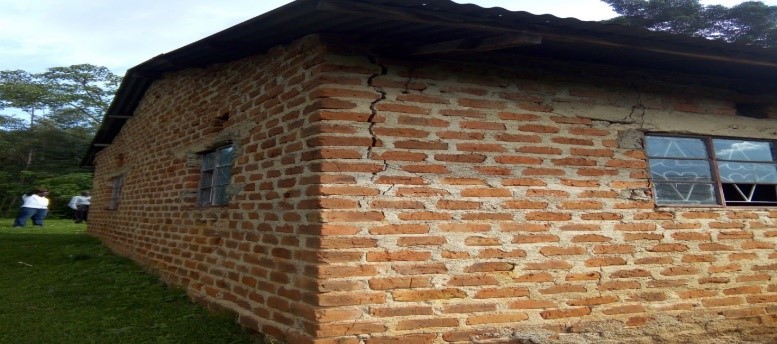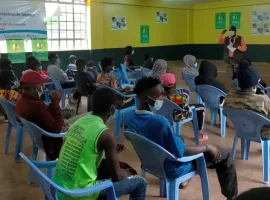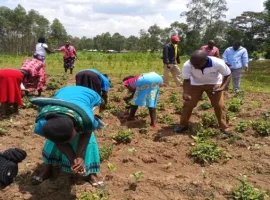When Development Projects Cause Harm – Quarry Campaign
By Michael Owuor and Benson Khamasi, AfriNov.
Sometimes, well-meaning development projects can cause direct harm to the communities they are supposed to benefit.
That is the sad story of residents of a village in Malava sub-county, Kakamega County in Kenya.
From January 2017, the government commissioned the construction of the Kakamaga-Webuye highway. The project aimed at opening the western section of Kenya by linking the two major towns of Kakamega and Webuye.
The project contractor, a Chinese company, would later buy and set up a quarry to provide ballast for road construction. However, they failed to involve and consult the community on the quarry project from the onset.
“The Chinese company used too many explosives in the quarry. As a result, we have suffered greatly”, shared a community member living near the quarry.
Great loss and pain
The quarry and the blasting were a source of great despair for many community members. They suffered from flying rocks, ground tremors and dust.
For a community that does not have much, they were losing the little they had left- and their dignity. The roofs of their houses were destroyed from the flying rocks, the tremors led to cracks on the walls and the community members, including women and children were suffering from respiratory complication due to inhaling dust.
In one instance, a family lost their cow, which was hit by a flying rock. In another, a couple had a pregnancy miscarriage, a fact they attribute to the stress from the blasting especially at night.
Violence is not the answer.
When pushed to the wall, most would break and retaliate. Gladly, there is always another way. Nonviolence.
Turning the Tide (TTT) Kenya supported the community to stand up against the horrors caused by the quarry. TTT Kenya is a nonviolence campaign training program that equips and supports communities and grassroots organizations to identify and address violence and social injustice.
 “At first, the company’s management didn’t want to address the harm they had caused. The local authorities were on their side. We were the small people. Powerless” explains Kenneth Shikuku, a long-term TTT trained campaigner.
“At first, the company’s management didn’t want to address the harm they had caused. The local authorities were on their side. We were the small people. Powerless” explains Kenneth Shikuku, a long-term TTT trained campaigner.
Through training on nonviolent social action, the community used the acquired knowledge to identify the pillars that supported the injustice. The skills they received enabled them to undertake a successful campaign.
The campaigners convinced community members not to burn the company’s trucks and property in retaliation, fearing that this tactic would only lead to a brutal crackdown by the police. The campaign found allies in the National Environment Management Authority (NEMA) and in the Department of Mines and Geology,
who were sympathetic to the plight of the community. They advised and helped.
As a result, the quarrying was stopped when NEMA officials found that the company were operating without the necessary documentation. The community conducted a series of peaceful marches and wrote petitions to authorities, in order to add more pressure on the contractor.
Finally, the company caved. An assessment was conducted, and a first round of compensation was paid. 20 families who reside 200 meters from the quarry, each received USD 3,600 as compensation for damages. Additionally, the quarrying is now done with less explosive, causing no disturbance to the nearby community. The authorities, supervising the project, promised to withhold one million dollars to compensate affected families after the project is complete around March 2020.
In conclusion, a community member shared: “We are not opposed to the construction of the road. It is beneficial to us. We just wanted it to be done with humanity, compassion and without harm. TTT helped us do that”. The campaign is ongoing until the community members’ grievances are amicably addressed.





